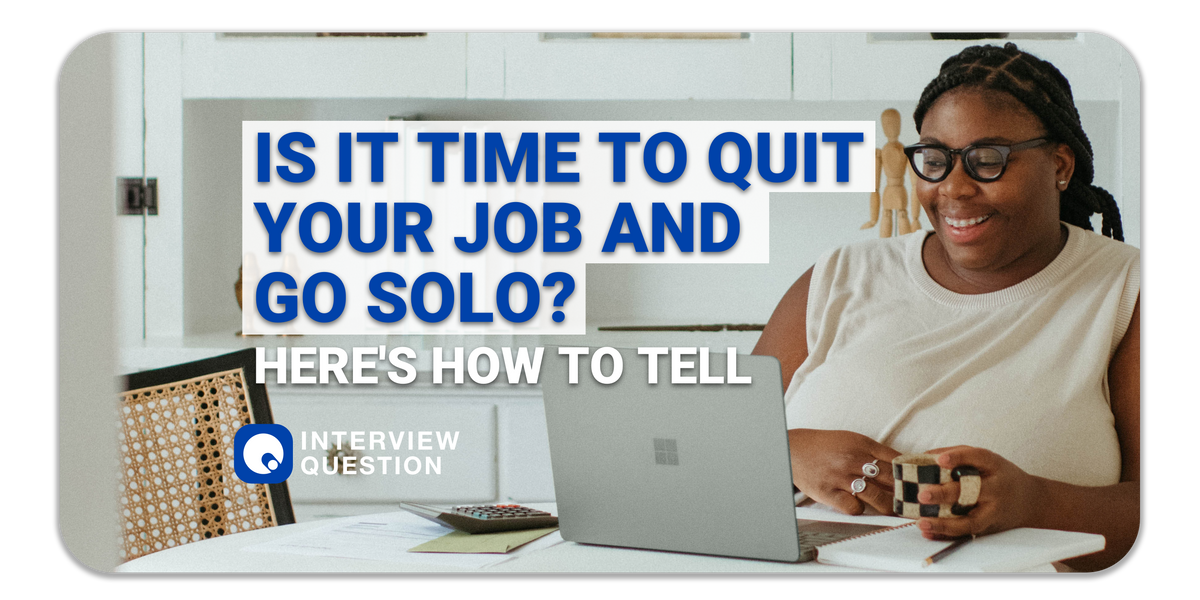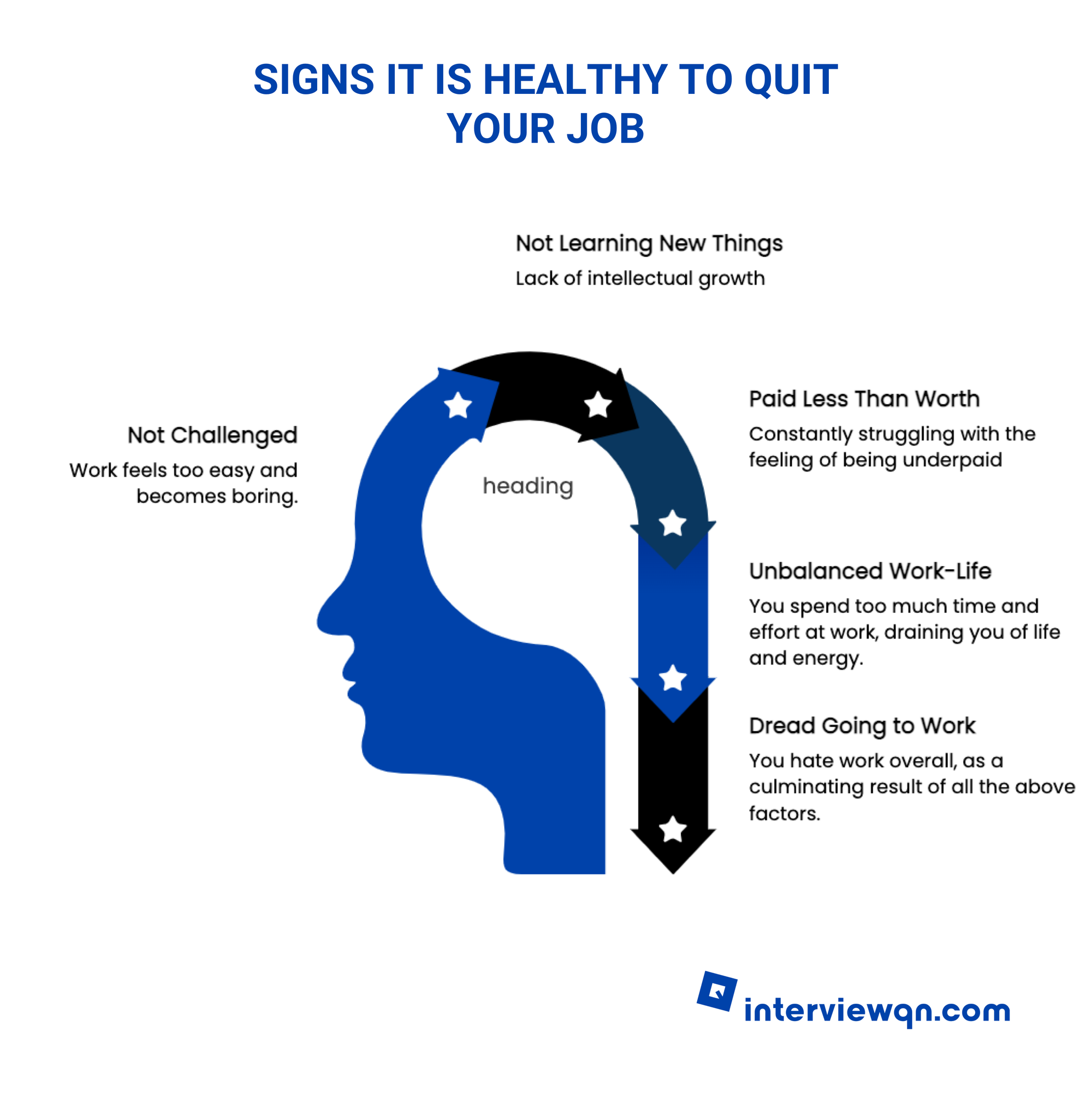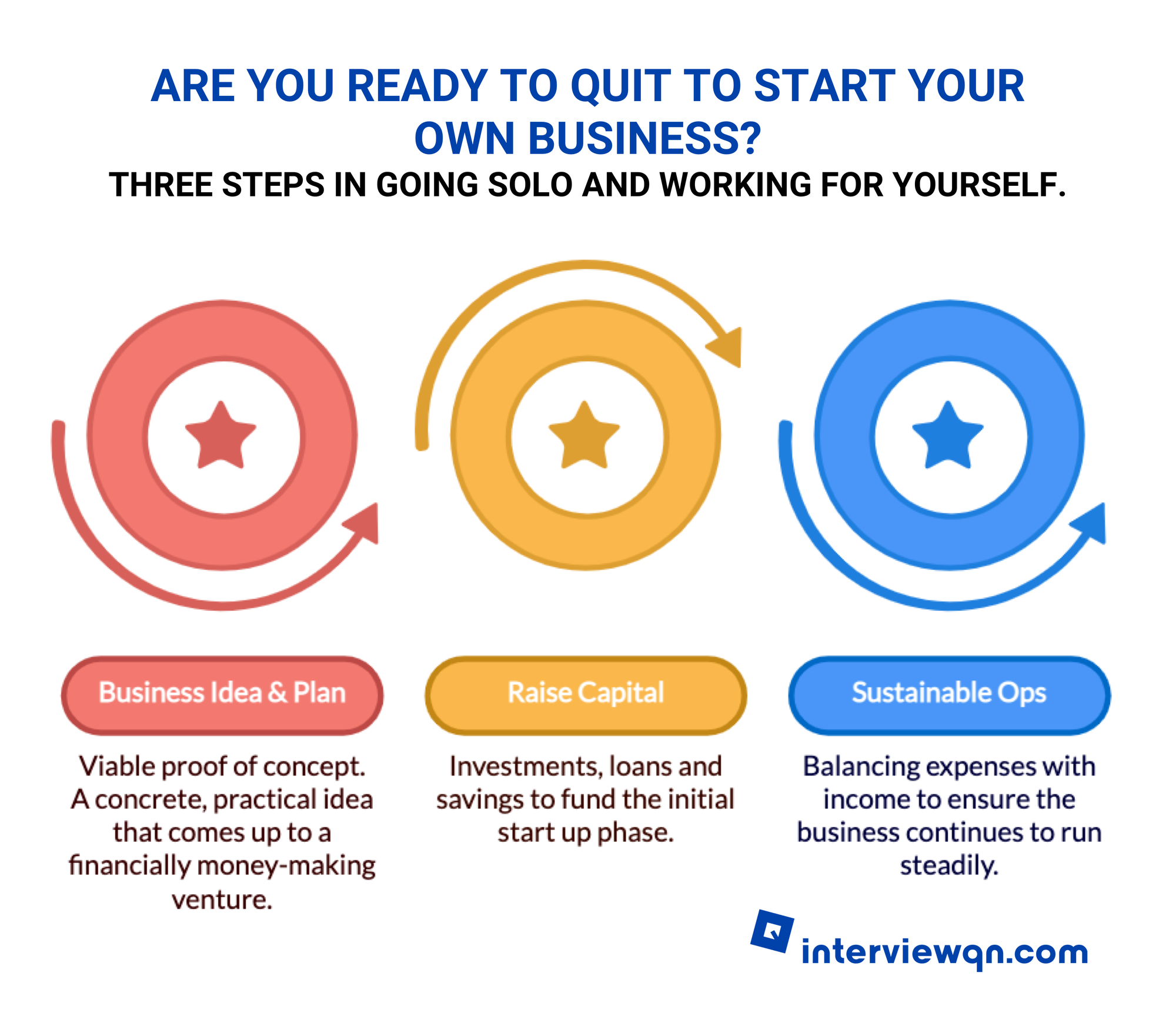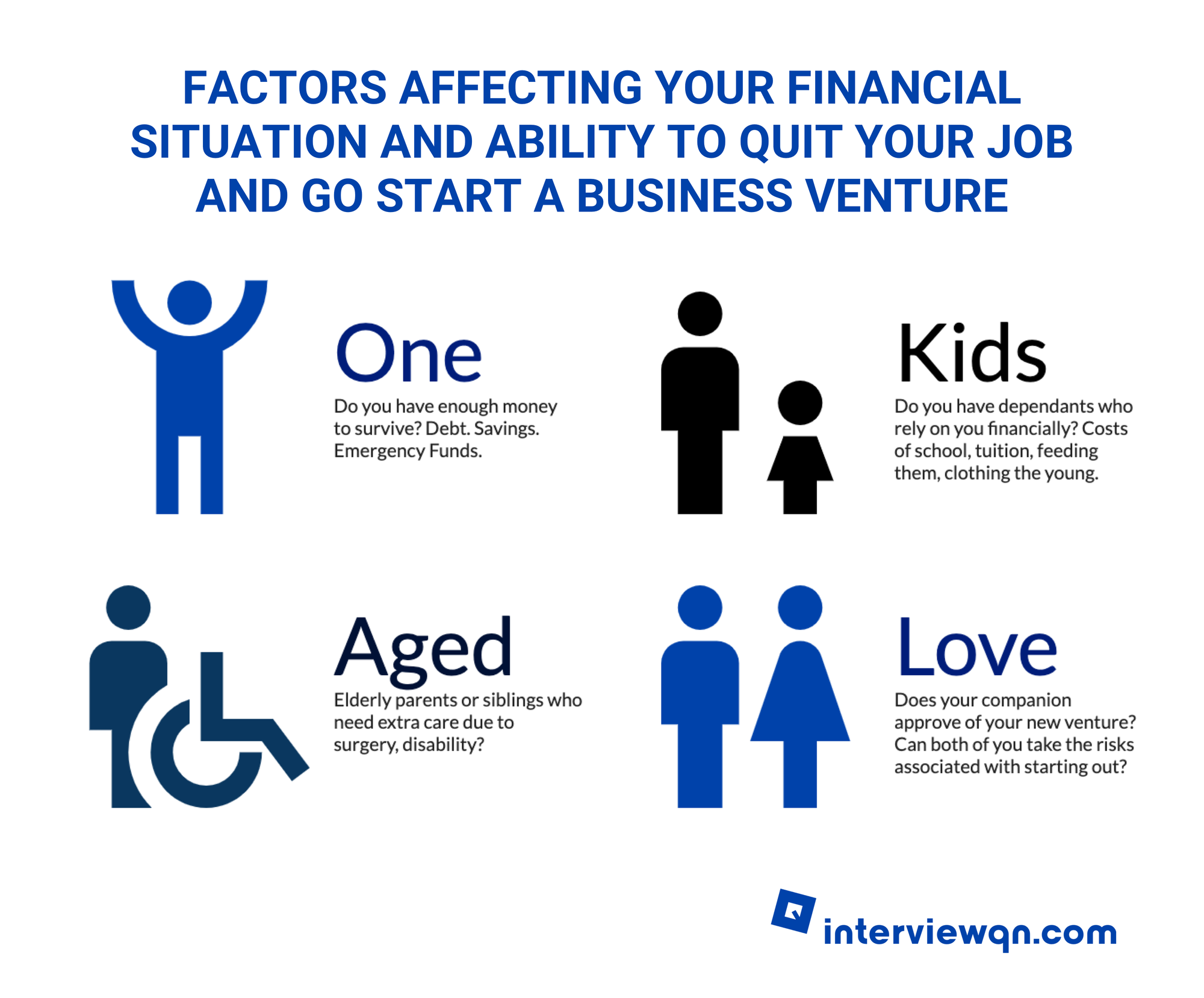Is it time to quit your job and go solo? Here's how to tell
If you're thinking about quitting your job to do a passion project or start your own entrepreneurship, here's how to tell if it's the right time.

Are you tired of your boss micromanaging you? Do you feel like you're stuck in a dead-end job with no room for growth? If so, it might be time to quit your job and go solo.
We explore the signs that indicate it might be time for a change and go out, venture on your own.
Introduction
Making the jump from employee to entrepreneur is a big decision, but it can be a very rewarding one. If you're not sure whether or not it's time to take the plunge, here are some signs that it might be time to quit your job and go solo.
If you're feeling unfulfilled at your job, it may be time to consider going solo. But how can you tell if you're ready to take the leap?

Here are a few signs that it might be time to quit your job and go solo:
- You're not challenged anymore.
- You're not learning anything new.
- You're not being paid what you're worth.
- Your work/life balance is out of whack.
- You dread going into work every day.
If any of these sound familiar, it might be time to start thinking about striking out on your own and becoming your own boss!
You're Unhappy With Your Current Job & Employment Situation
If you're unhappy with your current job or employment situation, it's time to make a change. Plus, if you don't see yourself staying at your current job for the long haul (i.e. what many of us call "a job with no future"), then quitting and striking out on your own might be the best move.
Whether you're looking for a new job or exploring different career options, there are several things you can do to improve your situation.
Here are some tips:
- Take stock of what's making you unhappy. Is it the work itself? The people you work with? The company culture? Once you know what the problems you are struggling with in your job, you can start taking steps to fix it.
- Talk to your boss about your concerns. If it is your problem, then is your bosses problem too. The company isn't yours. You don't have to be responsible for EVERYTHING. If there's something specific that's bothering you, see if there's anything that can be done to address the issue. Sometimes simply raising the issue can help alleviate the problem.
- Consider other options within the company. If there's something else at the company that would better suit your skills and interests, talk to your boss about transferring departments or positions. This is called a parallel shift or an inter-department transfer.
You Have an Idea for a Business Prepared & the Proof of Concept shows that the idea is Viable
Do you have an idea for a business that you're passionate about? If so, now is the perfect time to start working on making that dream a reality. When you work for someone else, there's only so much creativity and innovation that you can bring to the table. But when you're in charge of your own business, the sky's the limit!
If you have an idea for a business and the Proof of Concept (POC) shows that it is viable, then you are well on your way to starting your own company. This POC step allows entrepreneurs to validate their idea and ensure that it has potential for success.

However, there are still a few steps that you need to take in order to make sure that your business is successful.
First, you need to develop a business plan. This document will outline your goals, strategies, strengths of your team and how you plan on achieving them. Without a solid business plan, it will be very difficult to make your business successful.
Second, you need to raise capital for your new venture. This can be done through investment from friends or family members, loans from financial institutions, or even by selling equity in your company. Once you have raised enough money to get started, it is important that you use it wisely so that your funds do not run out quickly.
Third, once everything is up and running smoothly, you need control expenses, make enough income so that your business is sustainable. Make sure you aren't spending more money than you're bringing in and that your costs are reasonable. You also need to generate enough income to sustain your business. This means finding ways to increase revenue and making sure your prices are fair. Finally, once everything is up and running smoothly, you need to monitor both your expenses and income so that you can make adjustments as needed. By following these steps, you can ensure that your business is sustainable and successful in the long run.
Examine your financial situation to gauge the impact of a loss of an income stream from regular employment
If you are like most people, the majority of your income comes from employment. So, if you were to suddenly lose that income stream, it would have a significant impact on your finances.

Here are some things to consider when examining the impact of a loss of income from employment:
- How much debt do you have? If you have a lot of debt, then losing your income will make it very difficult to keep up with your payments and could put you at risk for defaulting on your loans.
- Do you have an emergency fund? An emergency fund can help tide you over during financially-tough times after you serve your notice, so that you don't have to rely solely on credit cards or other high-interest forms of borrowing.
- Do you have dependants (kids, elderly parents, disabled siblings) and their moral support? Family is a core social construct and having their approval can help support your business venture-journey.
If you're struggling to make ends meet or are constantly worrying about money, quitting your job and starting your own business may not be the best idea.
Conclusion
Like anything else in life, there is no one-size-fits-all answer to the question of whether or not you should quit your job and go solo.
Ultimately, the decision comes down to what feels right for you and your unique circumstances. If you're feeling unhappy and unfulfilled in your current situation, then it may be time to make a change.
Trust your gut, do some soul searching, and don't be afraid to take a leap of faith into the unknown. The world is waiting for you!
